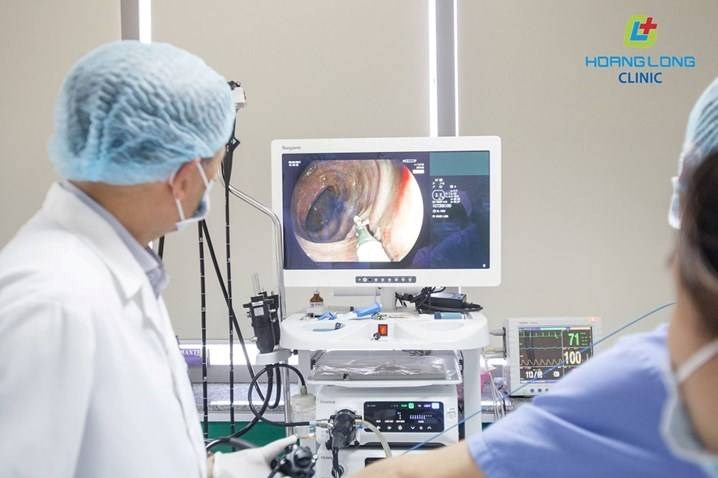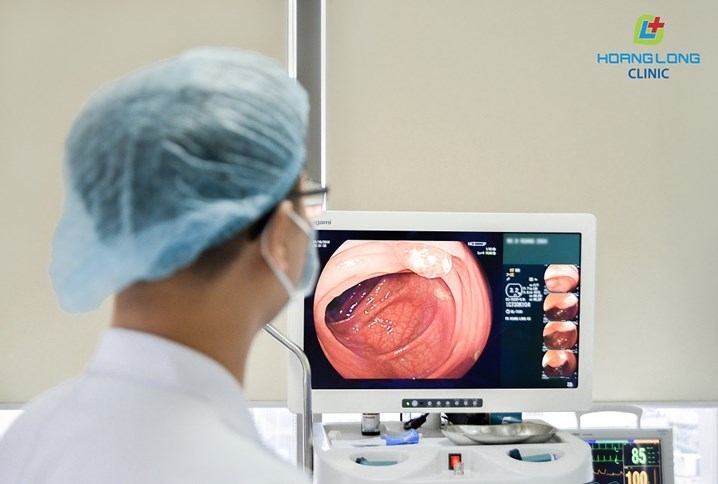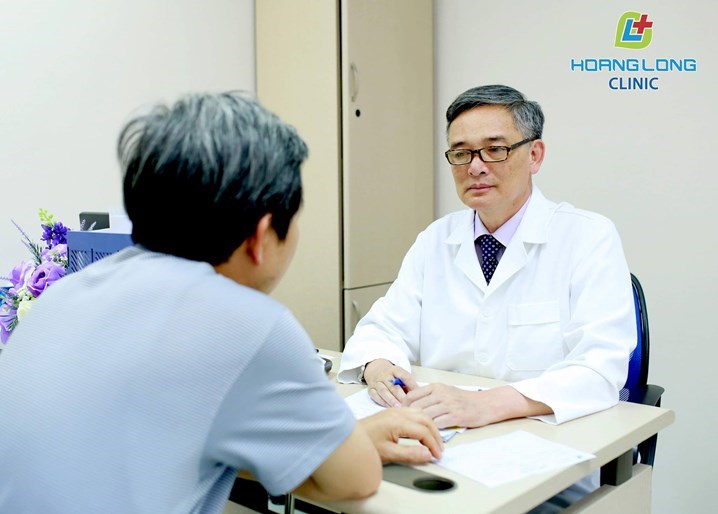A colon polyp is a small clump of cells that forms on the lining of the colon, being categorised as either sessile polyps or pedunculated polyps. They can be characterised as benign or pernicious and have wide differences in size.
Common types of colon polyps
Colon or large intestine is a long, tube-like organ that is connected to the small intestine at one end and the anus at the other. Its main function is reabsorbing the water and electrolytes from digestive residues and transforming them into faecal matter. It will then pass through the rectum and the anus by the gastrocolic reflex and finally be expelled.
A colon polyp is a small clump of cells that forms on the lining of the colon, being categorised as either sessile polyp or pedunculated polyps. They can be characterised as benign or pernicious and have differences in size. Those polyps that are larger in size will normally have a higher chance to develop into cancerous and could lead to further consequences such as intestinal bleeding or intestinal obstruction.
According to the statistics, approximately 90% of colorectal cancer cases were found to propagate from polyps, in addition, colorectal cancer is one of the most common cancer types in the digestive tract. Therefore, early removing the polyp has become one of the most effective methods of cancer prevention as it can reduce the risk of developing further complicated consequences and cancer in the future.

Different methods used in the diagnosis of colon polyps
-
Colonoscopy
Colonoscopy is considered as the latest and most effective method to detect polyps. Through colonoscopy, the detected polyps will be removed during this procedure. This process also allows doctors to perform a biopsy to find the possible cancerous cells if patients are suspected to have colon cancer. This is a complete test because patients often have more than one polyp and any of them all has possibility to progress to pernicious.
-
Colon X-ray
In addition, to detect colon polyps, doctors may also require patients to take X-rays with the Barium follow through of the colon and thereby, give an appropriate treatment plan according to the results.
Treatments for colon polyps
When a polyp is detected, doctors will recommend patients to remove it because there is a risk of malignancy when we leave it to progress naturally. Hence, after detecting the polyp’s position and completing patient’s consent, they will perform the polyp removing procedures during the colonoscopy.

Image: Endoscopy is one of the most effective methods to accurately diagnose different digestive diseases in the colon.
Currently, the modern endoscopy systems are equipped with new technologies to provide high-resolution images and the magnified endoscopy helps the medical practitioners to accurately assess the polyp’s boundary and size; predict its possibility of malignancy and select an appropriate removal method.
Colonoscopy is also considered as a low-risk procedure and time-efficient as it normally lasts about 30 minutes. Moreover, patients will also be anesthetised during the procedure, hence, they are almost pain-free.
As a result, with this endoscopic intervention method, the procedure will be performed smoothly which allows the patients to recover quickly and can be discharged from the hospital in the same day.
Hoang Long Clinics – a reliable place to have colon polyp removal
Hoang Long Clinics owns the latest high-tech endoscopy centre in Vietnam
- We are proud to be the first medical centre in Vietnam to apply the LCI 7000 endoscopic technology to the gastrointestinal endoscopy examination with more than 20 endoscopic devices and 120 flexible endoscopes of all kinds in order to sufficiently meet all patients’ needs in digestive health check.
- The LCI 7000 series is considered as the latest advanced endoscopic devices being currently available and is being used by the leading gastroenterologists worldwide in the diagnosis and treatment of digestive diseases.
- This system of modern machinery which is capable to magnify 300 times with extremely sharp images and virtual staining functions will help doctors to detect even the smallest lesions and observe their structures clearly.
- Recently, our clinics just launched the second endoscopy area which further contributes to the aim of doubling the current productivity to provide the best care services for our patients.
International standards are applied in our disinfection process
- Our sterilisation and disinfection process meets the international standards to ensure all the instruments and equipment are sterilised 100%, preventing cross-contamination between patients.
- All endoscopes are deep cleaned using an automatic machine following the international standards.
- Biopsy pliers and endoscopic aids are sterilised using plasma and ethylene oxide (EO) as a low temperature method to prevent any risk of cross-contamination.
Our doctor teams are all leading professors and experts in the digestive filed

Image: Prof.Dao Van Long directly provide consultations and treatment plans for patients.
Our clinic has gathered a team of professors, associate professors, doctors, masters and senior technicians who will directly perform endoscopy, consultation and treatments. For example, Prof. Dao Van Long – Former General Secretary of the Vietnam Association of Gastroenterology, Former Head of Gastroenterology Department in Bach Mai Hospital, Former Director of Medical University Hospital; and Doctor Pham Thi Lan Huong – Former Head of Gastroenterology Department of E Hospital; etc.
Affordable consultation and treatment fees
- We provide high quality services with affordable prices that are accessible for everyone. An initial examination fee is only 150,000VND when you book a direct consultation with our leading professors and experts.
- All patients are welcomed, cared and consulted by our enthusiastic staffs.
- Our clinic works cooperatively with the Institute of Gastroenterology and Hepatology in researching and investigating in order to provide the most effective and optimal treatment regimens for patients. Our strengths are performing exploratory and endoscopic procedures which meet the needs of examinations and treatments for almost all digestive diseases such as polyp removal, foreign body removal, removing tumours under the lining of stomach and duodenum, ulcer haemostasis through endoscopy, oesophageal varices ligation, biopsy for cancer screening, etc.
- Therefore, when you have any abnormal symptoms related to the digestive tract, please contact us via hotline number: 024 628 11 331 or 024 628 11 337 to book appointments with our professors.
Contact details:
Add: 10 Floor VCCI Tower, no 9 Dao Duy Anh Street, Dong Da district, Hanoi.
Hotline: 19008904| 024 628 11 331
Zalo: 0986954448
Fanpage: https://www.facebook.com/phongkhamdakhoahoanglong
- Gastrointestinal endoscopy - gold standard for early diagnosis gastrointestinal cancer
- Current methods of small bowel endoscopy
- AMULET Innovality – The most accurate mammography technology
- When to stop treatment for hepatitis B
- Endoscopic ultrasound – an advanced technique for diagnosing gastrointestinal tumors